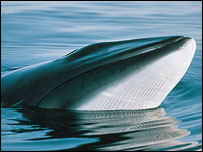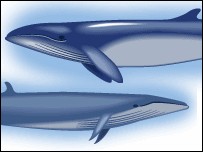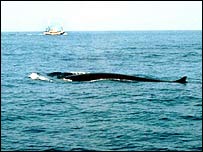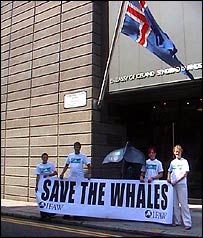|
"Its fast growing whale-watching industry, currently worth around £5m a year, is likely to suffer as a result.
"There is absolutely no scientific basis for these whales to be killed. Whales already face constant threat from pollution, entanglement in fishing nets, habitat loss and other dangers.
"It is very likely that the whales Iceland intends to slaughter are also visitors to the Scottish coast."
Ifaw said the move ignored recent international efforts to strengthen conservation measures for whales in the IWC and worldwide.
The Icelandic Tourist Industry Association (ITIA) is opposed to whaling.
The association, whose members include the country's main airline, Icelandair, represents probably 80-90% of Iceland's turnover from tourism.
It said earlier this year: "Whale-watching has become one of the most popular tourist activities in Iceland, providing considerable income for the economy, as well as creating a very positive image for Iceland."
It said this image would be damaged by a return to whaling.
Top
|



